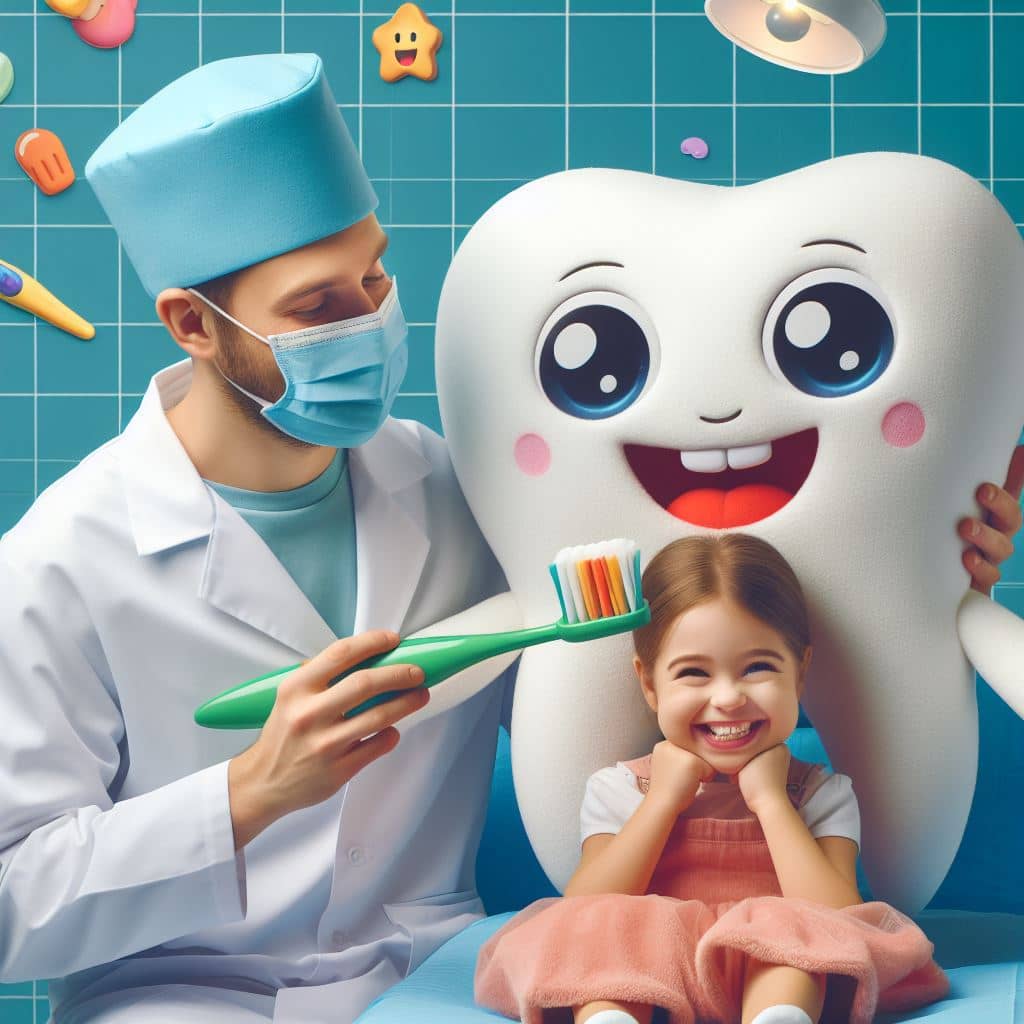Paediatric dentistry plays a crucial role in shaping a child’s attitude towards dental care and oral health. For many children, visiting the dentist can be a daunting experience, often leading to anxiety and fear. However, by applying principles from psychology and incorporating research findings, paediatric dentists can create positive experiences for anxious children, setting the foundation for a lifetime of good oral health.

Understanding Dental Anxiety in Children
Dental anxiety is a common phenomenon among children, often stemming from fear of the unknown, past negative experiences, or sensory sensitivities. According to a study published in the Journal of Dentistry for Children, approximately 20% of children experience dental anxiety, which can lead to avoidance of dental care and poor oral health outcomes.
The Role of Psychology in Paediatric Dentistry
Incorporating psychological principles into paediatric dentistry can help alleviate anxiety and create positive experiences for children. For example, using positive reinforcement techniques, such as praise and rewards, can help children feel more comfortable and confident during dental visits.
Research Findings on Managing Dental Anxiety in Children
Study 1: Distraction Techniques
- Researchers: Tickle, M., Jones, C., Buchannan, H., and Milsom, K.
- Study: A study published in the International Journal of Paediatric Dentistry examined the effectiveness of distraction techniques, such as watching TV or listening to music, in reducing dental anxiety in children. The study found that distraction techniques were successful in reducing anxiety levels and improving cooperation during dental procedures.
Study 2: Tell-Show-Do Technique
- Researchers: Carter, A. E., Carter, G., Boschen, M., and AlShwaimi, E.
- Study: Another study published in the International Journal of Paediatric Dentistry investigated the effectiveness of the Tell-Show-Do technique in managing dental anxiety in children. The study found that this technique, which involves explaining procedures to children in a child-friendly manner before performing them, helped reduce anxiety and fear.
Implementing Strategies for Positive Dental Experiences
- Child-Centered Approach: Adopting a child-centered approach that focuses on the child’s comfort and well-being can help build trust and reduce anxiety.
- Effective Communication: Using clear, simple language to explain procedures and involving children in decision-making can help empower them and reduce fear.
- Creating a Calming Environment: Creating a welcoming and calming environment in the dental office, with soothing colors, toys, and distractions, can help ease anxiety.
Conclusion: Building a Foundation for Lifelong Oral Health
By incorporating psychological principles and research findings into paediatric dentistry, dental professionals can create positive experiences for anxious children. These experiences not only help alleviate anxiety in the short term but also set the stage for a lifetime of good oral health habits. By working together, parents, caregivers, and dental professionals can ensure that children receive the care they need in a supportive and nurturing environment.
FAQs
1. How common is dental anxiety in children?
Dental anxiety is relatively common in children, with studies suggesting that approximately 20% of children experience some level of anxiety related to dental visits.
2. What are some common signs of dental anxiety in children?
Common signs of dental anxiety in children include fear or reluctance to visit the dentist, crying or tantrums before or during dental appointments, and physical symptoms such as stomachaches or headaches.
3. How can I help my child overcome dental anxiety?
There are several strategies you can try to help your child overcome dental anxiety, including positive reinforcement, distraction techniques, and choosing a paediatric dentist who specializes in treating anxious children.
4. Are there specific techniques that paediatric dentists use to help anxious children?
Yes, paediatric dentists often use techniques such as Tell-Show-Do, which involves explaining procedures to children in a child-friendly manner before performing them, and distraction techniques, such as watching TV or listening to music during dental procedures.
5. Can dental anxiety in children lead to long-term dental problems?
Yes, if left untreated, dental anxiety in children can lead to avoidance of dental care, which can result in untreated dental issues and long-term oral health problems.
6. At what age should I start taking my child to the dentist?
The American Academy of Paediatric Dentistry recommends that children have their first dental visit by age one or within six months of the eruption of their first tooth.
7. How can I prepare my child for their first dental visit?
You can prepare your child for their first dental visit by talking to them about what to expect, reading books about going to the dentist, and playing pretend dentist at home.
8. Are there any specific foods or drinks that can help promote good oral health in children?
Foods and drinks that are high in sugar can contribute to tooth decay, so it’s important to limit their consumption. Instead, encourage your child to eat a balanced diet rich in fruits, vegetables, and whole grains.
9. What role do parents play in helping their children maintain good oral health?
Parents play a crucial role in helping their children maintain good oral health by teaching them proper oral hygiene habits, scheduling regular dental check-ups, and modeling healthy behaviors.
10. How can I find a paediatric dentist who specializes in treating anxious children?
You can start by asking for recommendations from your child’s pediatrician or other parents. You can also search online for paediatric dentists in your area and read reviews to find one who is experienced in treating anxious children.

